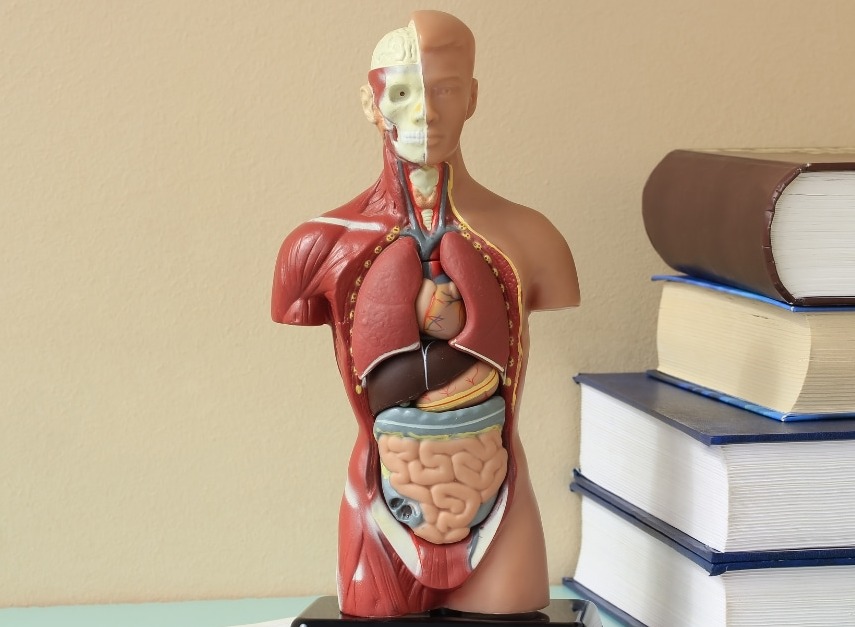POEMS syndrome: everything there is to know!
Published Dec 29, 2023 • By Claudia Lima
POEMS syndrome is a rare and complex disease, characterized by a range of symptoms that affect several organ systems in the human body, in particular, the endocrine system.
What does the term POEMS mean? What are the symptoms of this disease? How can it be diagnosed and treated?
We explain it all in our article!

What is the POEMS syndrome?
POEMS syndrome is a chronic systemic disorder, i.e. an inflammatory disease that affects various organs and alters their function. It is a rare disease combining:
- Polyneuropathy (P), nerve damage or peripheral neuropathy,
- Organomegaly (O), enlargement of the liver, spleen and lymph nodes (Castleman disease),
- Endocrinopathy (E), abnormal hormone levels,
- Monoclonal-protein (M), abnormal blood antibodies (plasma cells),
- Skin changes (S).
This condition is thought to be caused by abnormal functioning of the endocrine glands, which produce hormones. These glands are damaged by antibodies (immunoglobulins) circulating in the blood. These antibodies should normally protect the body against bacteria, viruses and toxins, but if they malfunction and are present in excessive quantities, they can damage the organs. The exact cause of POEMS syndrome remains unknown, but the disease is always associated with cancer, which is why it is known as paraneoplastic.
In some cases, the syndrome is accompanied by serious visceral damage, particularly neurological and renal damage.
POEMS syndrome is also known as: osteosclerotic myeloma, PEP syndrome, Crow-Fukase syndrome, Takatsuki syndrome, polyneuropathy-endocrinopathy-plasma cell dyscrasia syndrome.
POEMS syndrome can exist in different forms without changing its nature. This phenomenon is known as clinical polymorphism, and makes it difficult to diagnose the disease, thus delaying the start of treatment.
Its peak incidence (new cases of disease) is thought to be between the ages of 50 and 60, and it seems to affect men more often than women.
What are the symptoms of POEMS syndrome?
People with POEMS syndrome may experience the following symptoms:
- Enlargement of the liver,
- Swollen lymph nodes,
- Low testosterone levels (hypogonadism),
- Type 2 diabetes,
- Hypothyroidism,
- High levels of parathyroid hormone (hyperparathyroidism),
- Hypoactive adrenal glands (Addison's disease),
- Excessive production of certain antibodies (gammopathy),
- Skin abnormalities (hyperpigmentation, excessive hair growth, haemangiomas),
- Areas of bone damage on the body,
- Fluid accumulated in the body (legs, abdomen, pleural space or near the optic nerve),
- Chronic and intermittent fever.
The severity of the disease depends on the organs affected. The course of the disease is chronic.
How is POEMS syndrome diagnosed?
The diagnosis of POEMS syndrome is based on the combination of clinical, radiological and biological signs.
To diagnose POEMS syndrome, doctors carry out a clinical examination to detect physical symptoms, and then prescribe various blood tests to detect the abnormal presence or absence of certain antibodies and hormones.
Analysis of VEGF levels is essential. VEGF stands for Vascular Endothelial Growth Factor, a protein whose role in the body is to trigger the formation of new blood vessels, or angiogenesis. VEGF plays a role in tumor growth.
A radiographic assessment of the bones, elevated VEGF levels and a bone marrow biopsy are all used to confirm the diagnosis. VEGF levels correlate with the disease activity.
POEMS syndrome is frequently confused with chronic inflammatory demyelinating polyneuropathy (CIDP), multiple myeloma, amyloidosis, Guillain-Barré syndrome or MGUS (monoclonal gammopathy of undetermined significance).
Early diagnosis and response to treatment are essential in reducing morbidity.
What are the treatment options for people with POEMS syndrome?
The treatment of POEMS syndrome is not standardized.
Treatment may include chemotherapy and/or radiotherapy to reduce the number of abnormal plasma cells, corticosteroids, and sometimes stem cell autotransplantation.
Supportive care must also be provided, such as physiotherapy and the use of various medical devices: orthoses and CPAP (continuous positive airway pressure) machines.
POEMS syndrome is therefore a rare paraneoplastic disorder that can be difficult to diagnose. However, thanks to medical research, progress is being made in understanding its pathophysiology. Combining clinical examination with biological and radiological data enables the diagnosis to be rapidly established and confirmed. Treatment is prescribed according to the extent of the lesions, and gradually becomes more targeted.
Was this article helpful to you?
Give it a like and share your thoughts and questions with the community in the comments below!
Take care!
Sources :
POEMS Syndrome : un diagnostic à ne pas méconnaître, ncbi.nlm.nih.gov
Syndrome de POEMS : troubles hormonaux et métaboliques, msdmanuals.com
POEMS Syndrome, orpha.net
Syndrome POEMS : diagnostic, prise en charge et traitements, sciencedirect.com
Le syndrome de POEMS : caractérisation de la neuropathie et devenir post-traitement, cnrs.fr
Comments
You will also like

Diabetes: Discrimination, Professional Life, Plan Ahead... What do patients say?
Nov 9, 2018 • 9 comments

 Facebook
Facebook Twitter
Twitter

